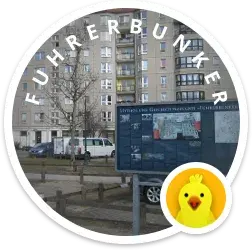
The Ultimate World War II Travel Experience
The must see World War II sites for those who love history.
Over 80 years after World War II began, it continues to fascinate people of all ages. The consequences of World War I and the rise of nationalist leaders in Germany and Japan who were determined to expand their nations powers led to a war that engulfed the world.
Hitler's push into Western Europe, Russia and Africa and Hirohito's push into China and the Pacific Islands brought the Allied nations of Britain, the Soviet Union, the United States and others together to stop their drive for global domination.
Over 75 million lives were lost (a majority of them civilians) and millions more were wounded. Allied forces eventually won the war in 1945 but the repercussions would be felt for decades to come.
It's important that we continue to remember and pass on the history from this time period especially the atrocities that occurred in the concentration camps. We can't change these past events but we can save future lives by ensuring they are not repeated.
Allied Leaders

Winston Churchill
Britian

Joseph Stalin
Soviet Union

Franklin D. Roosevelt
United States
Axis Leaders

Adolf Hitler
Germany

Benito Mussolini
Italy

Emperor Hirohito
Japan
Visit the places and experience the events that changed the world.

Anne Frank House
The home where Anne Frank and her family hid from Nazi persecution during World War II.

Bletchley Park
Learn about the Allied efforts to break the codes Germany used to keep their communications secret.

John Frost Bridge
Part of Operation Market Garden, British forces captured and defended the bridge in the Battle of Arnhem.

Normandy American Cemetery and Memorial
Pay tribute to the over 9,000 American troops who died in Europe during World War II.

Oradour-sur-Glane
The city remains unchanged from the day the German army massacred its 642 inhabitants and destroyed the village.

Pegasus Bridge
Learn about the surprise attack to take the bridge and prevent German amour from reinforcing troops during the D-Day attack.

The Reichstag
The Reichstag arson fire helped Hitler and the Nazi party become the dominant party in Germany.

Warsaw Ghetto
The Warsaw Ghetto was the largest Nazi ghetto during World War II. Over 390,000 prisoners died here by bullet, gas, starvation, or disease.

Arromanches
See where British forces stormed this Normandy beach and built a Mulberry harbour to bring men and supplies to the front lines.

Eagle's Nest
Sitting above the town of Obersalzberg, Adolf Hitler’s summit residence was used to entertain important guests.

Juno Beach
Step onto the beach where the Canadian Army invaded and pushed farther into France than any other landing force on D-Day.

Omaha Beach
Stand on the beach where the American Infantry and Army Rangers defeated the German army to reach their D-Day objectives.

Oskar Schindler Factory
See how Oskar Schindler, despite being a member of the Nazi party, saved the lives of 1,200 Jews.

Pointe du Hoc
View the stronghold where American forces scaled the cliffs to capture the highest point between Utah and Omaha beaches.

Tuskegee Airmen National Historic Site
Visit Moton Field where the Army Air Corps trained the first African American airmen to fly and maintain combat aircraft.

Warsaw Uprising
Learn how the citizens of Warsaw fought unsuccessfully for 63 days to oust the Nazis and regain control of their city.

Auschwitz
A Nazi concentration camp where over 1.1 million people died including 960,000 Jews.

Holocaust Memorial
A memorial dedicated to the more than 6 million Jewish victims of the Holocaust.

Mardasson Memorial
The Battle of the Bulge was the largest, deadliest battle fought by the United States during WWII.

Operation Dynamo
Stand on the beach where over 338,000 soldiers were evacuated over 8 days as the German Luftwaffe attacked from above.

Pearl Harbor
The December 7, 1941 surprise attack on the harbor by the Japanese would push the United States to enter World War II.

Sachsenhausen
A Nazi concentration camp north of Berlin used to hold political prisoners including Joseph Stalin's oldest son.

Utah Beach
The westernmost of the five beach landings that took place in Normandy on D-Day.

Wolf's Lair
Tour Hitler's headquarters on the Eastern Front where he would lead the German forces and narrowly avoid an assassination attempt.
Photo Attributions: Many of the photos come from these great photographers
Additional Places to Explore
Not every important place has something to see or do. Sometimes these places are lost to history or they don't take much time to explore. In these cases, there are still stories to be told and information to learn. And now, there are special stickers to collect when you stop and visit.

Saint-Mère-Église
Saint-Mère-Église was the first town to be liberated on D-Day. See where paratrooper John Steele landed on top of the local church.

Fuhrerbunker
Destroyed by the Allies, Hitler spent his last days protected in this bunker. Today, just a small sign remains.

Liberty Road
Kilometer markers from Utah Beach D-Day landing to Bastogne, Belgium commemorating the liberation of France.

Bastogne Barraks
See General McAuliffe headquarters during the Ardennes Offensive. His forces would be completely surrounded but would not give up the fight.

Flakturm III
One of the few remaining German flak towers. The Luftwaffe used them to defend the city during Allied bombing raids.
Photo Attributions: Many of the photos come from these great photographers

World War II Museums
-
101st Airborne Museum
Bastogne, Belgium -
Airborne Museum
Sainte-Mère-Eglise, France -
Arromanches: Musée du Débarquement
Arromanches, France -
Atlantic Wall Museum
Raversijde, Belgium -
Bastogne War Museum
Bastogne, Belgium -
Caen Memorial Center
Caen, France
-
Falaise Memorial
Falaise, France -
Memorial Museum of the Battle of Normandy
Bayeux, France -
Overloard Museum
Colleville-sur-Mer, France -
Pegasus Bridge Museum
Ranville, France -
Utah Beach Museum
Sainte-Marie-du-Mont, France -
Warsaw Uprising Museum
Warsaw, Poland